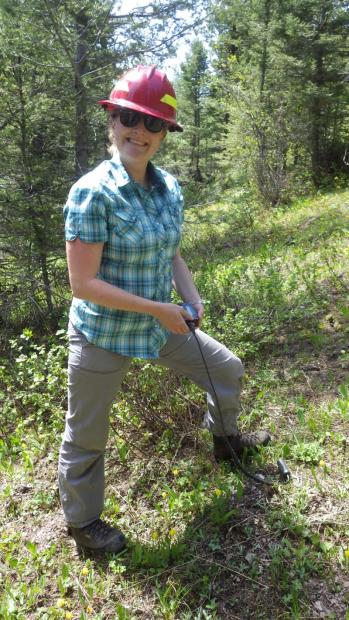U.S. National Forests have over 380,000 miles of roads. Many of these roads are over 25 years old, sub-standard, compacted, and invaded with non-native plant species. Roads that are being decommissioned need to be restored so that they recover their hydrologic function, soil productivity, and native vegetation.
Restoration treatments involve adding agricultural or wood straw, which are successful to varying degrees. We tested the use of biochar as a restoration medium, created by using fast-pyrolysis and beetle-killed lodgepole pine, to evaluate changes in soil bulk density, moisture holding capacity, and re-vegetation.
Biochar is created from excess woody biomass that would normally be burned. Biochar use on forest sites can (1) sequester carbon, (2) improve soil moisture conditions, (3) decrease soil bulk density, and (4) improve native vegetation success. These four attributes combine to improve the success of soil restoration activities, particularly on drought prone sites.
